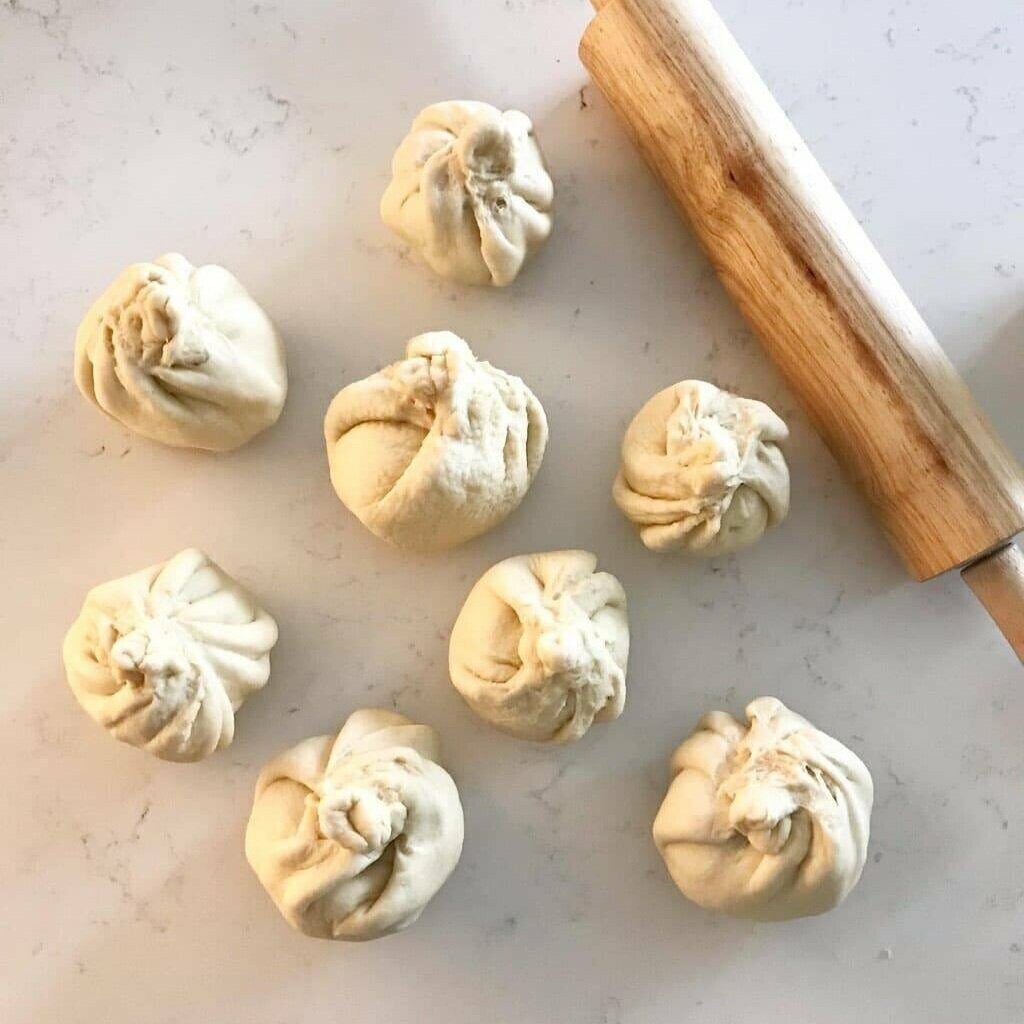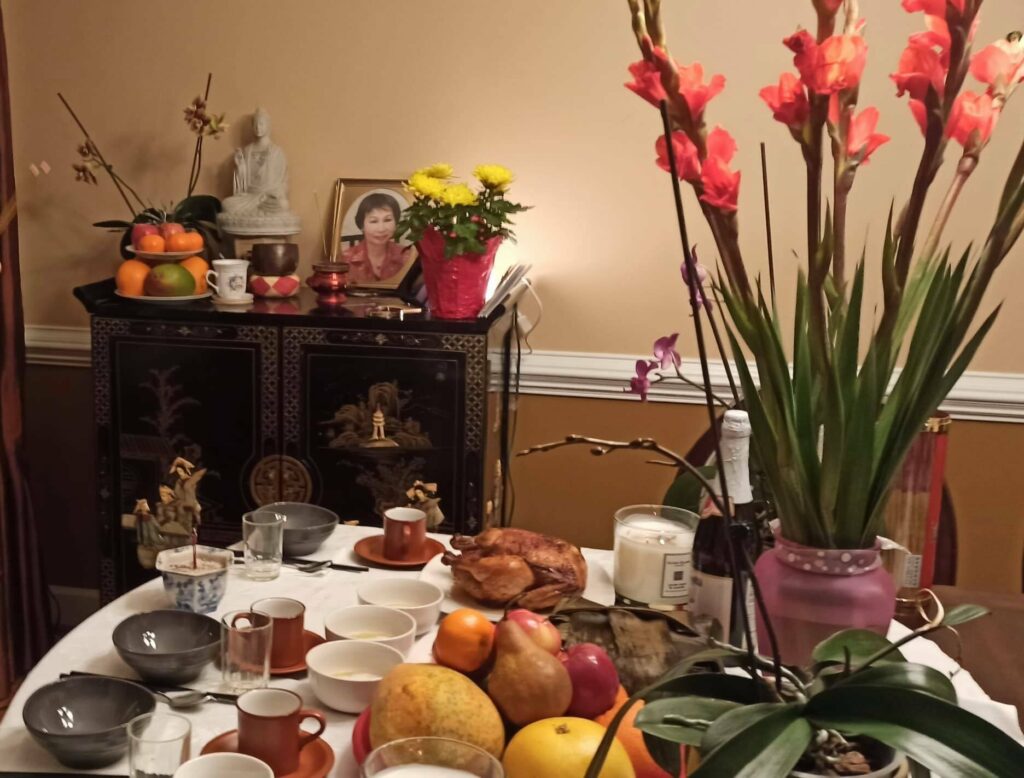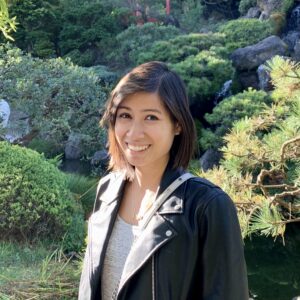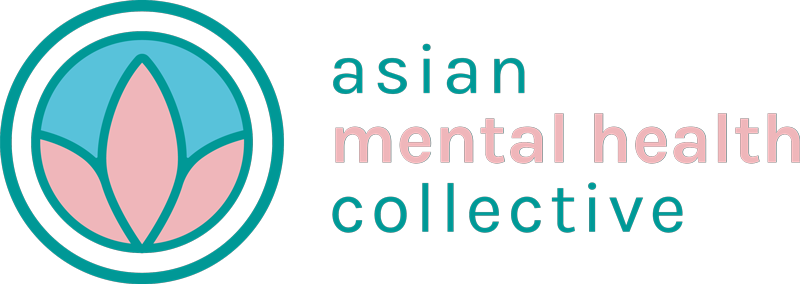By: Dorothy Vu
The night before February 12, 2021, I was working late hours when I opened up a group text message exchange between my mom and sister:
Sister: Is your house completely clean?
Mom: Not really but it’s good enough. No need to stress. I didn’t clean much…
Sister: Ok, but I can hear grandma saying you have to…
I looked at the time—it was 9:30 PM. As well-intentioned my mom always was whenever she said things like, “no need to stress,” those words would often set my anxiety into motion and “stress” me out even more. Panic and anguish bubbled up inside of me as I thought about the dirty dishes in the sink, the overflowing trash can, and all the cardboard boxes I had yet to recycle. I had less than three hours to clean my condo before midnight—to rid my home of any bad luck before the start of Tết (Lunar New Year in Vietnamese). While I hadn’t been the best at following Tết traditions in recent years, this time I was determined to do as much as I could in the absence of the one person who would always remind me to uphold these long-held beliefs growing up: my bà ngoại (maternal grandma).

On September 7, 2020, I lost my bà ngoại to a years-long battle with chronic heart failure. In her 83 years of life, she survived being held at gunpoint by Viet Cong soldiers, a near fatal car accident, two open-heart surgeries, and raising six children as a Vietnamese refugee and as a single mother in America. She was the matriarch of my big family, and a second mother to me during times when my parents were busy at work and couldn’t access after-school or summer childcare.
It was my first time losing someone I was close to, and the grief consumed me to the point where I started having frequent panic attacks. Her death reignited my fear of mortality and the resulting numbness of existential dread. It didn’t help that COVID-19 was an ongoing threat and that I was already isolated living on my own. I began to experience what the psychology articles and my therapist referred to as dissociative episodes, which specifically involved the sensations of detaching from my mind and body (depersonalization) and detaching from my surroundings (derealization). I had experienced panic attacks with some dissociation in the past, but my symptoms were usually nausea, tremors, shortness of breath, and fainting. In these new episodes, I felt high without the drugs, as if I were living in some sort of alternate reality. I was a bystander to my own actions and thoughts, unable to focus even in the moments when I was interacting with friends and family in person. Life continued to play out in front of me, but I was nonreactive to almost everything—the good and the bad. For several months, the world around me often appeared three shades dimmer.
Like many of those who have lost a loved one recently, my family was unable to properly mourn and comfort one another due to COVID-19 constraints. We handled the funeral arrangements through several contentious Zoom calls among four generations of our family across the globe, and the funeral itself was limited to only fifteen of us—masks on, outside, six-feet apart, with forty or so others on Zoom. Without bà ngoại, and in the midst of a pandemic, we were disconnected. At the same time, her death gave us a new reason to come together.
Throughout my childhood, bà ngoại was the one who connected everyone in my family for reunions and smaller gatherings, but also to the best hairdressers, bakers, and car mechanics in the area. For twenty years she worked in immigration law, helping countless families in the Falls Church community of Northern Virginia as they navigated life in a new country. Whenever she took me to Eden Center, a historic Vietnamese strip mall in Falls Church, we would always run into someone who knew her, and she would score us the best bargains on food and merchandise. As the heart and soul of our family, she was also the one who would host our annual Lunar New Year celebration.
Tết at bà ngoại’s house was always the same. The parents would play blackjack for hours on end while the kids alternated between playing Nintendo 64 and bầu cua cá cọp, a Vietnamese variation of a Lunar New Year’s gambling game. On the long oval dining table, bà ngoại would prepare a large spread of Vietnamese dishes, many of which she had cooked herself. Before digging into the lavish feast, we would lay out the food onto a wooden altar and pray to the spirits of our visiting ancestors through an aroma of fresh flowers and burning incense sticks.
Over the years as bà ngoại’s health declined, my mom and her siblings took turns hosting Tết, and the traditions began to disappear. Sometimes the most we ever did was order food, wear red, and pass out Li Xi (lucky money). Even bà ngoại would let most of the traditions go, but she’d never fail to call my mom and tell us to do two things: clean our houses before the start of Tết, and pray to our ancestors to ensure a prosperous year ahead. This year, however, the reminders came from my mom and sister. Tired from work and worried that I was already starting off the year with bad luck, I finally responded:
Me: Yeah I didn’t clean much either. Can I clean tomorrow morning?
Mom: No cleaning until the second day.
Me [at 12:05 AM]: I just finished cleaning…hope that’s okay.
The tradition of honoring ancestors during Tết–one that my family had long forgotten–carries an even greater weight now that my grandma is gone. My mom began building her altar the day after she passed, throwing together an assemblage of old furniture, Buddha statues, bowls, and other trinkets that bà ngoại had once owned. The first time I saw the altar in its entirety was during Thanksgiving dinner, our first holiday without her. But the moment my mom set out the food and incense, the room grew darker. I faded out. For thirty minutes I ate and responded on autopilot, ignoring the fact that I couldn’t process a word my mom was saying to me.
A few days later, I brought up this experience to my therapist. “You’re still grieving, and we’re still in a pandemic,” she said. “Allow yourself time.”
Heeding the CDC warnings about gathering during Christmas, my mom and I decided to take a break and celebrate the next holiday through Zoom. I breathed a sigh of relief as I avoided another potential trigger to my dissociative episodes. Once Lunar New Year came around, and I thought about its significance to my family, I knew I had to try again. I quarantined and got COVID-19 tested in order to spend the first day of Tết with my mom.
We were in good spirits the entire day, and although it was just the two of us, my mom and I found new ways to celebrate with others despite the physical distance. We shared photos, jokes, and well wishes in our family chat–a channel our relatives had continued to keep up with ever since bà ngoại left us. My older sister FaceTimed us from New York, showing us the delicious bao buns she had made from scratch. At night, my mom replicated our usual feast, complete with homemade bánh chưng, a glutinous rice cake filled with mung bean and pork. And she built upon the altar some more, putting together the most beautiful bright red floral arrangement that towered behind a portrait of bà ngoại in her favorite lucky red blazer. I smiled as I thought about what bà ngoại would’ve said if she were there in person–how she would’ve criticized the asparagus soup that my mom had overcooked or shaken her head at my feeble attempt to clean my condo in time.

That night as I stared at the impressive spread that lay between her portrait and me, I tensed up, bracing myself for the panic symptoms. They didn’t come. I wondered if this meant I was healing. I could see how strong my grandma’s presence was within these traditions, and how it grounded me more in the present than I had ever been in months.
I stepped up to the altar, pressed my hands together, bowed my head, and closed my eyes.
“Chúc mừng năm mới, bà ngoại.”
I wished my grandma a happy new year and said farewell to the Year of the Rat—her zodiac sign–making peace with the most challenging year of my life.
About the Author

Dorothy Vu
Dorothy is a Vietnamese American writer, digital storyteller, and mental health worrier-turned-warrior. She works as a communications specialist for a national education organization based in Washington, D.C. and is studying to get her MA in creative fiction writing at Johns Hopkins University. She is a contributor for The Mighty, where she has written about her struggles with anxiety and depression. Dorothy is passionate about lifting up the stories and experiences of communities that don’t always have the platform to share their voices. She believes words are powerful, stories matter, and hope will always win. Follow her on Twitter and Instagram @doryvu.

